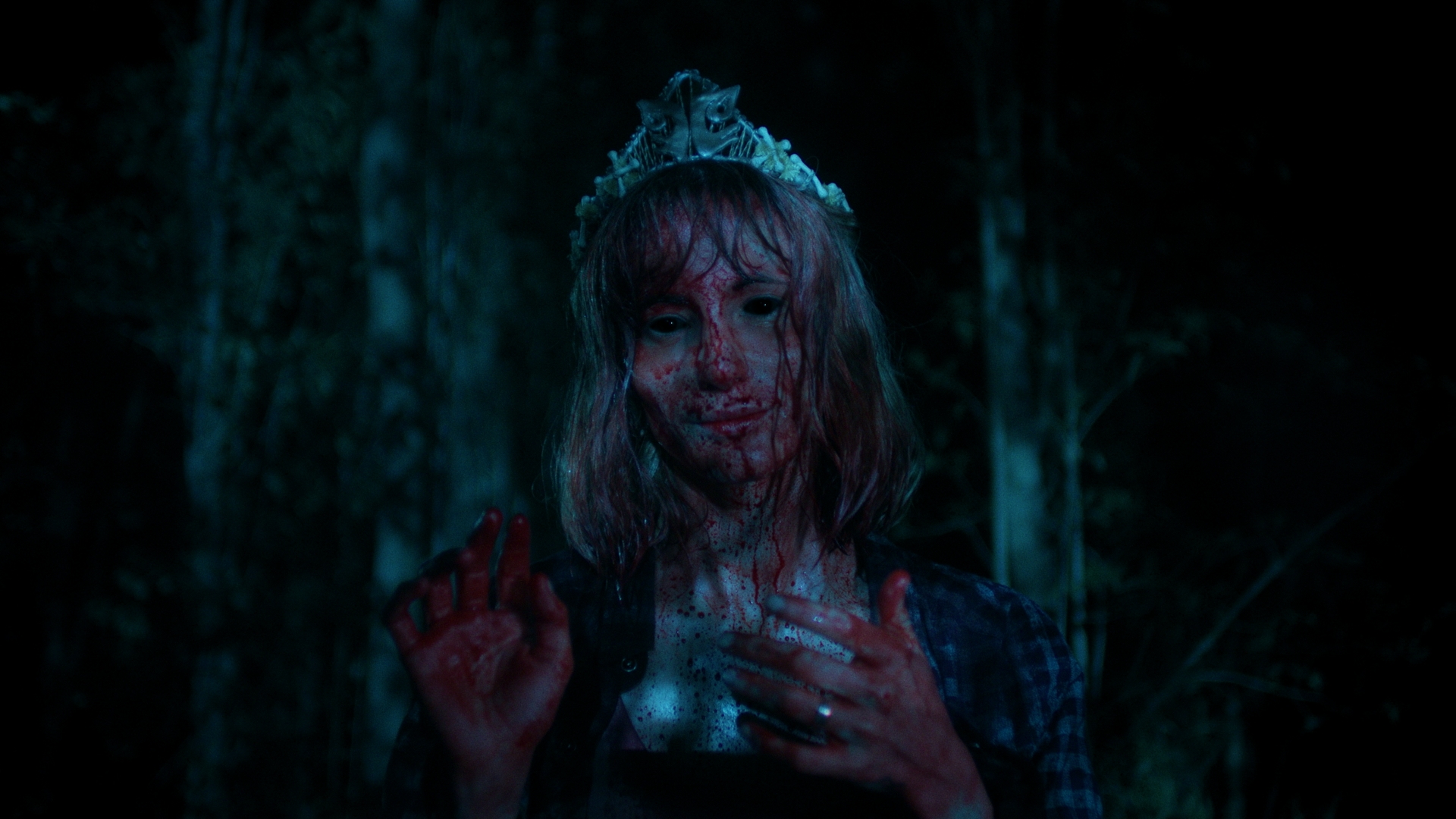


The cyclical nature of life, the past coming back to remind us of pain long thought left behind, the eternal return to misery; this theme has long been plumbed as a source of horror in all mediums of the genre. It feels almost fundamental to the very nature of horror from the very beginning. Emilia Cotella’s The Devil Whispered My Name is an examination of resurfacing trauma and the quicksand-esque lure of childhood horror.

Carla is on the brink of having it all. A struggling dancer in Buenos Aires who has been grinding it out for years, she is set to travel to Europe for what seems to be her big break when she receives word from her rural hometown that a childhood friend has died by suicide. When she travels to attend the funeral, she realizes that the impact of a tragic incident from her teenage years might not be as settled as she had desperately hoped it would be.

This film is a sterling example of keeping it simple, stupid. Plot details are kept to a minimum with little exposition, little backstory, little mythos building, and a gradual and restrained approach to building tension. It may feel like nothing is happening, but Cotella is adept at maintaining a feeling of the film rushing towards some unspeakable climax as more and more details of Carla’s last night in town are revealed. It has the unsettling feeling of things busying themselves behind the scenes, of unsavory activity happening just out of sight. You get the feeling that in every dark corner of Carla’s hometown village there is some dark unspeakable thing doing something dark and unspeakable. I was reminded at times of Phantasm where there’s something undeniably weird and deeply wrong happening under the surface.
The Devil Whispered My Name is a take on the classic theme of us being through with the past but the past not being through with us. Carla’s last night in town as a teenager has touches of King’s Ritual Of Chud in It, where kids are messing with something they can barely comprehend and finding themselves eternally marked by it. There’s a similar flavor of tragedy in this film, as it becomes quite clear that no one in this film has ever really been happy because of what happened to them as teenagers. I suppose there’s a simple metaphor in there for trauma or abuse, but if there is Cotella doesn’t seem too concerned with giving us that on a silver platter. Instead, they treat us to a simple and sad and profoundly engaging story with one of the most visually haunting final scenes I have seen in quite some time.




